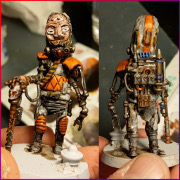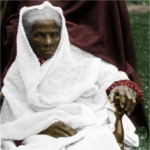|
Mans posted:I really like how back in the day the people who drew maps would get bored and start drawing animals soldiers and monsters all over the place. Uh what? They are depicting the epic battles that happened in ancient times when we drove the centaurs, flying reindeers and combat bears into extinction.
|
|
|
|

|
| # ? Jun 10, 2024 00:27 |
|
Hey, whoever sponsored those maps paid good amounts of money for them, might as well throw in some fancy stuff.
|
|
|
|
Speaking of military animals, we all know about that bear but I wonder how many people here know about Kuznechik? I was reading Vasily Grossman and amongst a plethora of other fairly irrelevant tales he describes Kuznechik, the Kazakhstani camel of the 308th Rifle division. Kuznechik was the unit's mascot (his uniqueness was used as a reference point by soldiers returning from the front in order to find the unit HQ). He was with the unit trough its formation previous to the battle of Stalingrad to the end of the war. The division was renamed the 120th Guard Mechanized Brigade, and further participated in Bagration (he was "almost bald" by this point), the liberation of Orel, the East Prussian offensives and the taking of Berlin. Through all this Kuznechik received three wound ribbons and the medal for the defense of Stalingrad. Once having arrived in Berlin, Kuznechik spat on the Reichstag 
|
|
|
|
Dr. Tough posted:I unironically agree with this statement. A bit late, but the Forgotten War by Clay Blair is the most detailed description of the operations and battles of the Korean War if the shooty part of warfare is what interests you.
|
|
|
|
Ghost of Mussolini posted:Speaking of military animals, we all know about that bear but I wonder how many people here know about Kuznechik? Steven Spielberg needs to make a film about THAT!
|
|
|
|
Medieval Medic posted:How prevalent have war animals been throughout the ages? I know about war dogs and war elephants, have there been other noticable animals(war bears and rhinos, I want to believe You'd be amazed; consider this excerpt: The German tank men would well be forgiven if they thought that every living creature in Russia was against them, particularly in view of the telex message from Army Operations Section of OKH and sent to all Army Groups. This read: "A panzer division on the Eastern Front which had placed its vehicles under cover and in a warm place, in accordance to standing orders, found that when an alarm call was received only 30 percent of its vehicles were ready for action. Mice had gnawed through the electric leads on the engines of the tanks." A Staff Officer with a sense of humour had annotated the document with the words "Soviet mice!!!!" -"War on the Eastern Front 1941-45"; James Lucas When I first read the above, it seemed just an amusing anecdote from the OstFront, but the chance discovery of previously restricted Soviet files, and a fluke of luck during an interview with a former Waffen-SS member, put me onto the trail of that most secret of secret wars within WW2. Initially following the lead on Soviet mouse detachments, this led to revelations about SS cat operations, and eventually to the untold story of what really happened to the disbanded antitank dog units of the Red Army. This is the story of animal heroics amidst the carnage and brutality of the OstFront. Battles fought in cellars and engine-compartments, away from the prying eyes of the better-known human combatants. Formation of the First Soviet Mouse Units: During the bleak days of "Barbarossa" in 1941, the beleagured Soviet Union was struggling desperately for survival,and all non-essential tasks were put to one side to concentrate on the defeat of Nazi Germany and her allies. One such area of non-essential work was the "Mouse Research Unit" at the University of Smolensk, led by Dr. Igor Valenkho. He had pioneered Pavlovian methods for teaching tricks to laboratory mice, and intended to use his mice for fine repair/recovery in industry and engineering - allowing work to be carried out without need to strip down machinery. But it was not regarded as realistic, and (especially with the approach of the Wehrmacht). Valenkho was re-assigned to the newly created anti-tank dog training unit. While despairing of his new work, the mouse-expert secretly continued with his old research, but with a new goal - anti-tank mice! Combining the two areas of research with which he had become involved, he spotted a niche for his trained mice. With their ability to get inside engines and destroy wiring and other small components, they were ideal for the task of disabling tanks and other vehicles. But there was a problem - how to get the mice to their targets? A flash of new inspiration came to Valenkho - the Polikarpov light bomber aircraft were famously making low-level nuisance raids on the Germans. They could drop his mice directly into action! After some persuasion, he was allowed to carry out an experimental drop on a German Panzer unit near Kirov in early April 1942. The results must have impressed the Red Army, because further drops were authorised, and in particular the mouse attack on 22 Panzer Division, 18-19 November 1942 which had a dramatic effect on the Stalingrad Campaign... The German Response Following this successful operation, Valenkho examined one of the disabled tanks (recovered by the Soviets) and discovered one of his mice sleeping in the engine compartment. This was the famous "Mikhail", who was honoured with a special "Hero of the Soviet Union" medal for his part. However, the easy days for the mouse specialists were drawing to a close. Apart from the awareness of mouse activity (as represented in the quote at the start of this document), the shooting-down of one of the specially-equipped Polikarpovs gave the Germans a clue as to what was going on...Thus, in late 1942, there developed the use of cats in Panzer units to combat the Red Army Mice. In Wehrmacht units, a random collection of cats were unofficially added to the ration list, and gave sterling (if unrecorded) service. But, in typical style, the SS would only allow pure black cats into their "Katzesicherheitabteilungen" (KSA - Cat Security Units). While showy, these units were often inferior to their scruffier Heer contemporaries (where the cats were chosen as mousers, rather than by how they looked). But Germany could not seem to supply enough cats. In desperation, the SS then organised special "Handschar" and "Hiwi" units of non-German cats, with some success. The KSA-Katsicherheistabteilungen were formed under command from SS-Oberkätzchenführer Katzenjammer and comprised of two battalions of five companies each. They were engaged in heavy action against Russian mice (Bolshevik coagitators, as the Nazis referred to them). The schnurren of these troops as they advanced through the night spread fear and panic and were otherwise fairly demoralising to Soviet rodent troops. However, "Aber wenn SS-Oberkätzchenführer Katzenjammer fort ist, tanzen die Mäuse." (It has been noted that, in the immediate post-war period, due to intelligence gleaned from former-Wehrmacht and SS officers, the US and UK both organised provisional cat units to protect their armoured units from possible Soviet sabotage - this was later rendered unnecessary when British scientists discovered a wire-coating inedible to mice). Every Dog Has His Day? With the reduction in success of his rodent legion, Dr. Valenkho despaired again - until another flash of inspiration struck him. The anti-tank dogs had proved a failure, and dogs were now being reassigned (mainly to Gulasch or Vivisection duties). Realising a use for limited numbers of these already trained dogs to escort his mice into action. If one or two dogs could be dropped in conjunction, these would chase off or distract the cats and allow the mice to infiltrate the AFVs. It was a desperate measure, but given the options a number of dogs did "volunteer" for duty. The resulting actions were of limited success, however, partly as the new Tigers were virtually proof against mouse attack - the petrol fumes tended to kill/overcome the mice before they could chew through the wiring. Anyway, by now the Soviets were on the upsurge, and had less need of such tricks...
|
|
|
|
Flippycunt posted:It's interesting to think about how differently things might have turned out if the purge had only been slightly more or less vicious. If it had been any more thorough some of the great military leaders that the USSR depended on to win the war, such as Chukov, might have been liquidated. I think that Stalin's purges (of both the party and the army) went as far as it was possible to take these things without descending into some bizarre state suicide. Hell, towards the end of his life Stalin had Molotov's own wife expelled from the party and sent to gulag, and Molotov just accepted it. Some talented people (like Zhukov) survived mostly through sheer luck. I think what fascinates me the most about the purges is that, while they did start out targeting Stalin's genuine rivals, in the end anyone in any position of power was a target. It was either a monstrous act of runaway paranoia, or a cold-blooded, calculated action to reduce the entire civilian and military leadership into a state of complete paralysis, unable to even think without Stalin's approval.
|
|
|
|
I'm playing Revolution Under Siege, and gently caress if I've learned not to look up the names of my Bolshevik officers by now. Without exception (well, with the exceptions of Stalin and Voroshilov) they die somewhere between 1937-1940. So I noticed that General Miller was operating against me in Arkhangelsk, and thinking that as a White general supported by the Entente he must have had a somewhat happy ending as an emigrant, decided to check his story in Wikipedia. Well, gently caress me: quote:On September 22, 1937, NKVD informer and All-Military Union intelligence chief Nikolai Skoblin led General Miller to a Paris safe house, where he was to meet with two German Abwehr agents. The agents were not who they appeared to be. They were in fact officers of the Soviet NKVD disguised as Germans. They drugged Miller, placed him in a steamer trunk and smuggled him aboard a Soviet ship in Le Havre. However, Miller left behind a note to be opened if he failed to return from the meeting. In it he detailed his suspicions about Skoblin.  Comrade Skoblin didn't have it much better: quote:There are several accounts of Skoblin's death, all of them secondhand. Pavel Sudoplatov alleges that Skoblin escaped to Spain and died in republican-held Barcelona during a German bombing raid. In Deadly Illusions (1993) by John Costello and Oleg Tsarev, the authors suggest that an NKVD General Alexander Orlov, smuggled Skoblin into civil war-ridden Spain by airplane and disposed of him in a Republican front area, keeping his ring to use in a later blackmail scheme. Victor Alexandrov speculates in The Tuchachevsky Affair (1963) that Skoblin was poisoned aboard a Soviet vessel, the Kuban, bound from Spain to Odessa (Ukrainian SSR, Soviet Union), and his skeleton ultimately ended up in a Soviet anatomical laboratory. Alexander Orlov in his own memoir, The March of Time (2004), writes that the NKVD compelled Skoblin to write undated love letters to Plevitskaya, which were used to buy her silence, and then smuggled him aboard a Soviet cargo vessel bound for Leningrad. Orlov ends his story in the Baltic Sea, leaving it to the reader to guess Skoblin's fate. Nadezhda Plevitskaya died in prison in 1940. Might as well, the prospects of a Russian communist gypsy NKVD-affiliated prisoner in German-occupied France were not very good. 
|
|
|
|
The Russian Civil War of the Twenties: Everyone dies horribly.
|
|
|
|
|
I'm going to a tour to Gettysburg. Anything in particular I should go to or look at?
|
|
|
|
Yeah, there were no happy endings. Denikin died due to a heart attack at 74 years, so I guess he could consider himself lucky. Trotsky had a pretty Lichtenstein fucked around with this message at 18:40 on Jun 4, 2012 |
|
|
|
That backs up my belief that if Stalin and Trotsky went one on one bare knuckle brawl style, only Trotsky would emerge alive.
|
|
|
|
|
The Russian civil war history is full of delightfully grotesk details. Like when Mikhail Muraviev, the commander of the Red Army Eastern Army Group, ceased fighting with the Czechs in the east and instead declared that the real fight should be with the Germans in the west:quote:The situation was saved by the Bolshevik chairman of the Simbirsk Province ExCom, a young Lithuanian worker named Vareikis (sent to the province in May). Vareikis set an ambush; he claimed later that Muraviev resisted arrest, Mauser in hand, but in any event he was killed. (It was reported that Muraviev committed suicide, but since his body had five bullet holes and several bayonet wounds this seems a little unlikely.)
|
|
|
|
SeanBeansShako posted:That backs up my belief that if Stalin and Trotsky went one on one bare knuckle brawl style, only Trotsky would emerge alive. Stalin was small in stature and his left arm was disabled and withered as a result of a childhood accident. He wasn't going to win a lot of brawls. On the other hand, while Trotsky was writing essays and theorizing about revolution, Stalin was planning bank robberies, kidnappings, and otherwise being an outlaw. This is one of the fascinating things about him as a historical figure, because he was basically the top henchman of the Bolshevik movement, the brutal mastermind who did the dirty work that kept the party alive. When it came down to a struggle between him and the smarter, more educated, and more charismatic Bolshevik veterans like Trotsky, Kamenev, and Zinoviev, he ran over them simply by virtue of being more capable, more vicious and cunning. Stalin is one of the most evil figures in history, but at the same time he's also one of the most outstanding figures. He was born the son of an illiterate and alcoholic shoemaker in Tbilisi, and pretty much by dint of hard work and lucky circumstances he died as one the most powerful men who ever lived. Very few people could boast similar career trajectories.
|
|
|
|
EvanSchenck posted:Stalin is one of the most evil figures in history, but at the same time he's also one of the most outstanding figures. He was born the son of an illiterate and alcoholic shoemaker in Tbilisi, and pretty much by dint of hard work and lucky circumstances he died as one the most powerful men who ever lived. Very few people could boast similar career trajectories. I think it's pretty ironic that Stalin himself has one of the bootstraps-iest life stories ever. I mean, considering the rhetoric of the Soviet Union's enemy during the Cold War.
|
|
|
|
Stalin also spoke Russian with a heavy Georgian accent. There was one Georgian actor, Mikheil Gelovani, who played the role of Stalin in more films than anyone else, 15 times. Basil Rathbone comes close with 14 films as Sherlock Holmes, but very few could get even close to that. Gelovani looked a lot like Stalin and also sounded precisely the same:quote:Reportedly, he was not the premier's favorite candidate for depicting himself on screen: since he was Georgian, he mimicked Stalin's accent "to perfection". Therefore, the leader personally preferred Aleksei Dikiy, who used classic Russian pronunciation. Comrade Gelovani as comrade Stalin: https://www.youtube.com/watch?v=xItolrDvoVg I'm not very fluent with Russian myself so I'm bad at appreciating the accent, but I do notice with many words that Gelovani doesn't use standard pronunciation. Interesting thing to note: in this 1949 film there are also US, British and French flags in Berlin, rushing to greet the Generalissimus. Not to say that the movie isn't a wank-fest to Red Army's achievements and its CinC's brilliance, but at least Soviets recognized that the western Allies participated in the affair. Also I'm loving the guys in striped uniforms, presumably fresh out of concentration camps...  You'd think that this was a cushy career choice, but when Stalin died in 1953 Gelovani could no longer find any work in acting. Now, one day within this century USA is going to have a president that speaks English as a second language and that day will be wonderful. Just the fact that Mitt Romney can speak French makes him unelectable to some.
|
|
|
|
Today I'm kind of curious about that little war that split the Netherlands apart and made Belgium an independent nation.
|
|
|
|
|
How did the red army react to the concentration camps? Presumably they liberated the majority of them, but were they thinking they were the German gulags? Or am I making that comparison due to have being fed cold war propaganda?
|
|
|
|
EvanSchenck posted:Stalin was small in stature and his left arm was disabled and withered as a result of a childhood accident. He wasn't going to win a lot of brawls. On the other hand, while Trotsky was writing essays and theorizing about revolution, Stalin was planning bank robberies, kidnappings, and otherwise being an outlaw. This is one of the fascinating things about him as a historical figure, because he was basically the top henchman of the Bolshevik movement, the brutal mastermind who did the dirty work that kept the party alive. When it came down to a struggle between him and the smarter, more educated, and more charismatic Bolshevik veterans like Trotsky, Kamenev, and Zinoviev, he ran over them simply by virtue of being more capable, more vicious and cunning. Just to clear something up that I heard once about Stalin. Did his Georgian birth name Dzhugashvili actually mean Iron, as I read in a book one time?
|
|
|
|
Nenonen posted:Now, one day within this century USA is going to have a president that speaks English as a second language and that day will be wonderful. Just the fact that Mitt Romney can speak French makes him unelectable to some. It has already happened, a lot of early US presidents would be completely unelectable today for a whole host of reasons.
|
|
|
|
Skeesix posted:Just to clear something up that I heard once about Stalin. Did his Georgian birth name Dzhugashvili actually mean Iron, as I read in a book one time? Stalin and Lenin are nicknames, used for conspiracy. Lenin - born as Vladimir Ulyanov, Lenin probably is after river "Lena" Stalin - born as Joseph Dzhugashvili, Stalin is after "Stal", which indeed means "steel".
|
|
|
|
Tovarisch posted:Stalin and Lenin are nicknames, used for conspiracy. I know those were both nom de guerres, and I knew what Stalin meant. I was asking if anyone knew if it was accurate that Dzhugashvili translates to "Iron" or some equiavalent.
|
|
|
|
Ron Jeremy posted:How did the red army react to the concentration camps? Presumably they liberated the majority of them, but were they thinking they were the German gulags? Most of the worst of the extermination camps were liberated by the Red Army by dint of the fact they were located in Eastern Europe and fell in the path of the drive to Berlin. It's important to note the difference between a traditional concentration camp, which was sort of a nexus for organizing prisoner/slave labor and was basically a gulag populated by POWs, dissidents and other Nazi undesirables, and the death camps, which were specifically built to carry out the Holocaust. Just about every side in WW2 employed some form of concentration camp (and often times explicitly called them "concentration camps"), either for housing prisoners or in order to relocate a segment of the population suspected of being a potential fifth column (such as the Japanese internment in the United States). The death camps were something unique to the Holocaust though and just about every first hand account of soldiers who liberated them reflects how horrifying they were, even to people familiar with the idea of interning a large portion of the populace.
|
|
|
|
Skeesix posted:I know those were both nom de guerres, and I knew what Stalin meant. I was asking if anyone knew if it was accurate that Dzhugashvili translates to "Iron" or some equiavalent. Ah, ok. I found that there are three possible origins: - after small town "Dzhugani" - that it is actually osetian and "Dzhugate" may be translated as "flock" - and finally apparently the word "Dzhuga" may also mean garbage
|
|
|
|
SeanBeansShako posted:Today I'm kind of curious about that little war that split the Netherlands apart and made Belgium an independent nation. Wikipedia's pages on the Ten Days Campaign in principal and the Belgian Revolution in general are a pretty good summary. I wouldn't know much more about the military side, Roegiers & van Sas are pretty negative about William I and his indecisiveness though. Is there anything in particular you'd like to know?
|
|
|
Koesj posted:Wikipedia's pages on the Ten Days Campaign in principal and the Belgian Revolution in general are a pretty good summary. I wouldn't know much more about the military side, Roegiers & van Sas are pretty negative about William I and his indecisiveness though. Is there anything in particular you'd like to know? I think Wikipedia covers the basics, I just see this war always happening in the Victoria games when you start out and it made me curious.
|
|
|
|
|
Not exactly military history per se but can anyone recommend a book on the Hatfield-McCoy feud? I just watched the History channel mini-series about it and it sparked my interest.
|
|
|
|
SeanBeansShako posted:I think Wikipedia covers the basics, I just see this war always happening in the Victoria games when you start out and it made me curious. There's just not much going for it on the operational side of things while all the strategizing is directly linked to Great Power politics.
|
|
|
|
Skeesix posted:I know those were both nom de guerres, and I knew what Stalin meant. I was asking if anyone knew if it was accurate that Dzhugashvili translates to "Iron" or some equiavalent. Not to my knowledge. Dzhugasvili is ჯუღაშვილი and that's not similar to any Georgian spelling of iron or steel to my knowledge. Molotov was also a porn name - molot being a hammer. But then 'Skryabin coctails' wouldn't sound as good, would they? Kirov was also born as Kostrikov. Maybe the practise should have been continued after the revolution. Eg. Gorbachev would have been much more convincing as Mihail Smertov (death). Nenonen fucked around with this message at 18:39 on Jun 5, 2012 |
|
|
|
Nenonen posted:Eg. Gorbachev would have been much more convincing as Mihail Smertov (death). Since смерть is feminine like сталь and Лена, it would have to be "Smertin" instead, unless my grammar knowledge fails me badly. There are some actual people by that name, though it may derive from something other than the noun for "death".
|
|
|
|
SeanBeansShako posted:Today I'm kind of curious about that little war that split the Netherlands apart and made Belgium an independent nation. It's important to note that the Low Countries hadn't been united since the Dutch Revolt - so since the 16th century. Since then the area that is now Belgium had been part of the Habsburg Empire - so part of Spain and part of Austria. During the Revolutionary Wars and the Napoleonic Wars, Belgium fell under French control. Once Napoleon was defeated, it was decided at the Congress of Vienna that Belgium would become part of the United Kingdom of the Netherlands. This was mostly pushed by Great Britain, who wanted to see the Low Countries as a buffer against French expansion. It quickly became obvious that this wasn't going to work out, though. Belgium and the Netherlands were very different in many ways. Economically, the Netherlands were a seafaring, trade-nation with a large agricultural base. In Belgium, however, the industrial revolution had already taken root and this required a different economic approach. Another major point was that the Netherlands were protestant and Belgium was very much Catholic - both militantly so, after the Dutch Revolt. There was some heavy resistance coming from the Catholic Church towards King William's more liberal policy of freedom of religion. And though the Belgian liberals supported William in this regard, they eventually switched sides because he was a king, still, and to gain more political rights. There was also some discontent about language, seeing as the Belgian elites and its south were Francophone and were suddenly a minority again. Anyway, in 1830, the July Revolution took place in France and as they say: 'When it rains in Paris, it trickles in Brussels'. After a performance of the opera 'La Muette de Portici' - which should tell you enough about who started the revolution -, the revolt was on. The upper class was quickly joined by the proletariat of Brussels and drove the Dutch forces from the city after some bloody street fighting. The Dutch made an attempt to take back Belgium in 1831 with the Ten Day's Campaign. This went about as well as you'd expect a war between an organised, professional army and a collection of militias and hastily assembled armies would go. The Dutch swept through Belgium, but were forced out after the Belgians asked the French for assistance. The Dutch couldn't do much against the might of the French armies and they couldn't rely on any of their allies seeing as they were preoccupied with crushing the revolt in Poland. This even though it was agreed at the Congress of Vienna that the European monarchs would assist each other in crushing internal revolts. But Poland's loss was Belgium's gain and in 1839 the Netherlands officially recognised Belgium's independence - though they held onto the traditionally Belgian area of North Limburg. The Belgians established a constitutional monarchy and shafted the proletariat of Brussels by implementing the traditional 'Democracy for Rich People' system. After the son of the French king didn't want to be King of the Belgians, they took Leopold of Saxe-Coburg and Gotha. He'd lost his chance at the British crown and denied the Greek one, but thought the Belgian one good enough. Or something. If you have more specific questions, I probably won't be able to answer them but feel free to ask. e: should check earlier posts as well. Koesj posted:There's just not much going for it on the operational side of things while all the strategizing is directly linked to Great Power politics. R. Mute fucked around with this message at 20:08 on Jun 5, 2012 |
|
|
|
Ron Jeremy posted:How did the red army react to the concentration camps? Presumably they liberated the majority of them, but were they thinking they were the German gulags? You have to keep in mind that the German invasion of the USSR was incredibly brutal and had entailed many mass executions and other war crimes that resulted in millions of deaths. The Soviets already knew what the Nazis were all about long before they discovered any death camps. There is also the matter that the Gulags varied in severity, and only Kolyma, by far the worst of them, bears any comparison to the Nazi extermination camps. Even there the yearly death rate was something like 25%, whereas at Auschwitz the great majority of arrivals were killed even before they were technically inmates. When extermination camps were liberated, it was fairly obvious what they were, and I doubt it came as any surprise to the Soviet Army (though I'm sure the people who actually saw it were horrified).
|
|
|
|
GULag was the organization that managed the Soviet prison camp archipelago, the letters standing for General Administration of Lagers (camps, not beer). To end up within the GULag you first had to be judged for a crime, whether actual or political. NKVD also used deportations to places of internal exile, eg. lots of Poles and Balts were sent to Siberia (or just shot) and practically the entire Chechen nation was deported to Uzbekistan during WW2 because Stalin didn't trust them. These exile villages were not part of the GULag system itself, but the exiles were told that any attempts to escape or return to home would be punished with 20 years in GULag. It'd been impossible for entire families to escape, anyway. In contrast, German camps were mostly for ethnic minorities or prisoners of war, and very few of the massive amounts of German concentration camp inmates had actually been sentenced in any tribunal, even a show trial.
|
|
|
|
How good was German espionage in WWII?
|
|
|
|
SlothfulCobra posted:How good was German espionage in WWII? Pretty poo poo. There were 0-1 non-double agents in Britain, and the ones they put into the US had a tendency to get caught. Also they had two competing intelligence agencies, at least one of which was headed by a guy who wasn't entirely big on Nazism.
|
|
|
|
wdarkk posted:Pretty poo poo. There were 0-1 non-double agents in Britain, and the ones they put into the US had a tendency to get caught. Also they had two competing intelligence agencies, at least one of which was headed by a guy who wasn't entirely big on Nazism. Wilhelm Canaris, chief of Abwehr. Not only not entirely big on nazism, but worked with the allies a bit. Many of [citation_needed] in that article though. At least one of the ones landed in USA gave himself up immediately and turned in other 3 who landed with him at the same time. Of course they all got to their destinations by a submarine. I'm now reading volume 2 of Hitler's U-boats. They had quite a range to be operating off Cape town and some even around Madagascar. And at first successfully, owing to poor ASW measures when they showed up. Same applied to U.S. east coast, Canadian coast and Caribbean sea - until the allies stepped up ASW measures in these places, they had many opportunities to sink ships. As allied presence increased, they always had to go elsewhere.
|
|
|
|
wdarkk posted:Pretty poo poo. There were 0-1 non-double agents in Britain, and the ones they put into the US had a tendency to get caught. Also they had two competing intelligence agencies, at least one of which was headed by a guy who wasn't entirely big on Nazism. Did they actually use their u-boats to drop spies on American shores?
|
|
|
|
jonnypeh posted:Wilhelm Canaris, chief of Abwehr. Not only not entirely big on nazism, but worked with the allies a bit. Many of [citation_needed] in that article though. Here's a petty good write-up on ther German spies in the US http://www.damninteresting.com/operation-pastorius/ quote:Just after midnight on the morning of June 13, 1942, twenty-one-year-old coastguardsman John Cullen was beginning his foot patrol along the coast of Long Island, New York. Although this particular stretch of beach was considered a likely target for enemy landing parties, the young Seaman was the sole line of defense on that foggy night; and his only weapon, a trusty flashlight, was proving ineffective against the smothering haze. As Cullen approached a dune on the beach, the shape of a man suddenly appeared before him. Momentarily startled, he called out for the shape to identify itself.
|
|
|
|
wdarkk posted:The ones they put into the US had a tendency to get caught.
|
|
|
|

|
| # ? Jun 10, 2024 00:27 |
|
The menace to US way of life that the German 5th column presented was averted thanks to the adoption of racial profiling and enhanced interrogation techniques. Former Nazi sympathizers like Lindbergh and Ford were also put under 24/7 surveillance and wire tapping.
|
|
|




























